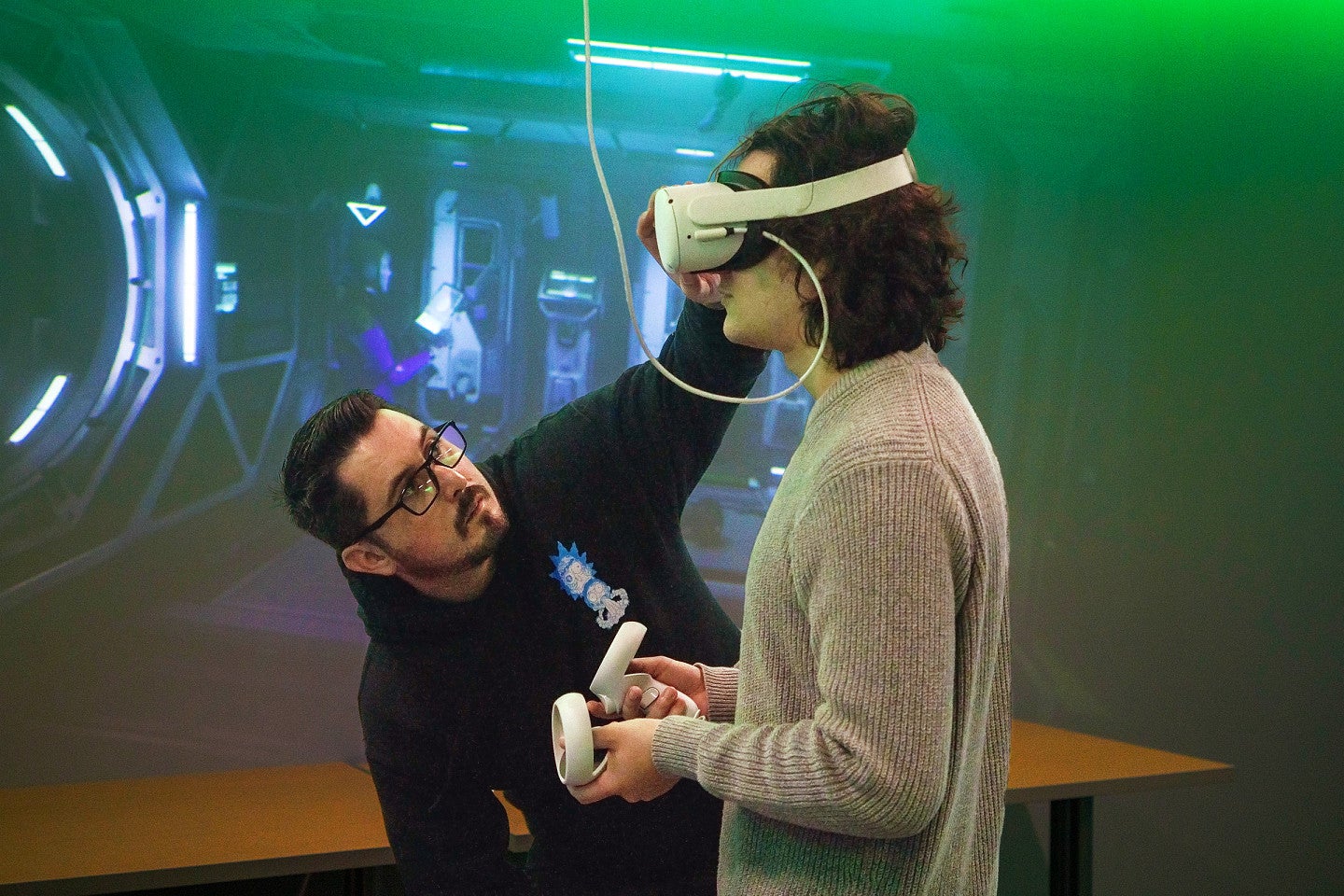
For many people, working with video games for a living is a dream. In the UO School of Journalism and Communication (SOJC), students, faculty and alumni are already doing it in the school’s game studies program and the new Esports and Games Research Lab (EGR Lab).
Games are a vehicle for delivering information and providing entertainment. Although you might not think of them as traditional “media,” games are becoming increasingly influential in our society. Game studies is the cultural study of games, gameplay, the players (or “gamers”) and the cultures surrounding them. The field includes research about video games and esports, which are multiplayer video games played competitively for spectators.
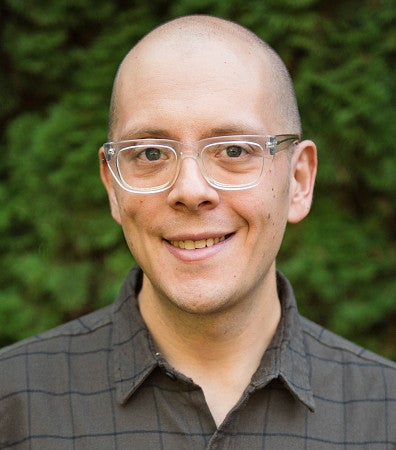
“Not only do games make up one of the biggest media industries in the world, but increasingly games —and specifically esports — are finding their ways into traditional media and communication fields, from journalism to film,” said assistant professor of game studies Maxwell Foxman. “This warrants reassessing how key ideas around games and play should be addressed by academics and professionals alike."
How do universities integrate esports to increase appeal to prospective students and faculty? How do students relate to esports and use it as a tool in their future careers? Should esports be university-sponsored athletic programs? The EGR Lab works to answer questions like these.
Although the term “esports,” short for electronic sports, wasn’t coined until the year 2000, it can be traced back to the 1970s. The introduction of esports to college campuses, however, is a pretty recent phenomenon.
The first varsity esports program launched in 2014 at Robert Morris University, sparking an explosion of universities adopting their own programs. There are now over 200 collegiate esports programs across the United States, hosting games such as Valorant, League of Legends and Overwatch.
The launch of the EGR Lab
The SOJC hired Amanda Cote and Maxwell Foxman as assistant professors of game studies in 2018 — a rare occurrence of two professors being hired in the same discipline at the same time. They took it as a sign of the school’s full support for their pursuit of game studies research and decided to run with it.
“It was a fortuitous moment when our arrival to the SOJC, the pre-existing interest of doctoral students wanting to explore a game studies project, and the introduction of the University of Oregon’s varsity esports team all occurred at once,” Cote said.
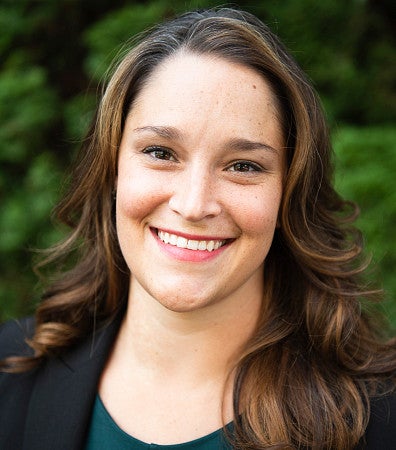
Cote and Foxman launched a series of research projects exploring the development and institutionalization of esports on college campuses. These inspired the creation of the EGR Lab, which now includes three additional faculty members, Henry Wear, Tara Fickle and John Clithero, as well as five Communication and Media Studies PhD students. Two SOJC alumni affiliate members also lead or support research projects and mentor doctoral students.
As qualitative researchers who historically worked alone, Cote and Foxman built the lab from the ground up. They started by organizing an extensive interview process with 31 — and counting — esports players, program directors, college administrators and students who support gaming through their work to investigate how esports fits on college campuses.
They found that the implementation of esports onto college campuses has been uneven and uncertain, because colleges vary in where and how they host their esports programs and in the amount they invest in scholarships and facilities.
“Our goal is to address this uncertainty in the best way possible so that current programs are at the very least avoiding anything harmful and at the best are promoting students’ interests in the future,” Cote said.
The doctoral students of the EGR Lab
The EGR Lab ensures that student researchers maintain their voices and pursue intriguing work of their own. At the same time, the lab offers a chance for them to consider how they could bring these interests to the study of collegiate esports.
Doctoral student Shane Burrell, for instance, brought his interests in virtual reality to the table and designed studies that bridged the gap between esports and innovative technologies.
“That’s the beauty of the lab: the ability to throw your ideas out there and talk about them as a group to see how we can all work together on a particular study that advances ideas on how esports can be incorporated into many different specificities of research,” he said.
As a mixed-methods researcher, Burrell has his “hands dipped into everything.” He contributes to a majority of the statistical studies, develops survey distribution plans and collects data on cultural perspectives. Collectively, these further his research into the cultural uses of communication.
Burrell’s experience settles between industry and academia, creating an opportunity to develop skills in his two future career interests: working in the tech industry and teaching and researching about cultural communication and communication psychology at a university.
Doctoral candidate Andy Wilson always wanted to work in academia. When he read Cote’s book “Gaming Sexism” while dissatisfied with remote teaching as a community college instructor during the pandemic, Wilson knew he needed to apply to the SOJC’s PhD program. His interests in gaming culture and hegemonic forces parallel Cote’s. As a qualitative researcher, interview methods, textual analysis and transcription coding are his areas of expertise.
“Working at EGR is a nice way to ground myself with like-minded individuals who speak my language and are interested in similar things,” Wilson said.
After completing his doctorate, Wilson plans to teach game studies at the university level. Inspired by Cote and Foxman, he hopes to work at an institution that doesn’t currently offer this discipline so he can work to develop a program from the ground up.
“Game studies is emerging, and with our work, one day it could be offered as a major throughout the United States,” he said.
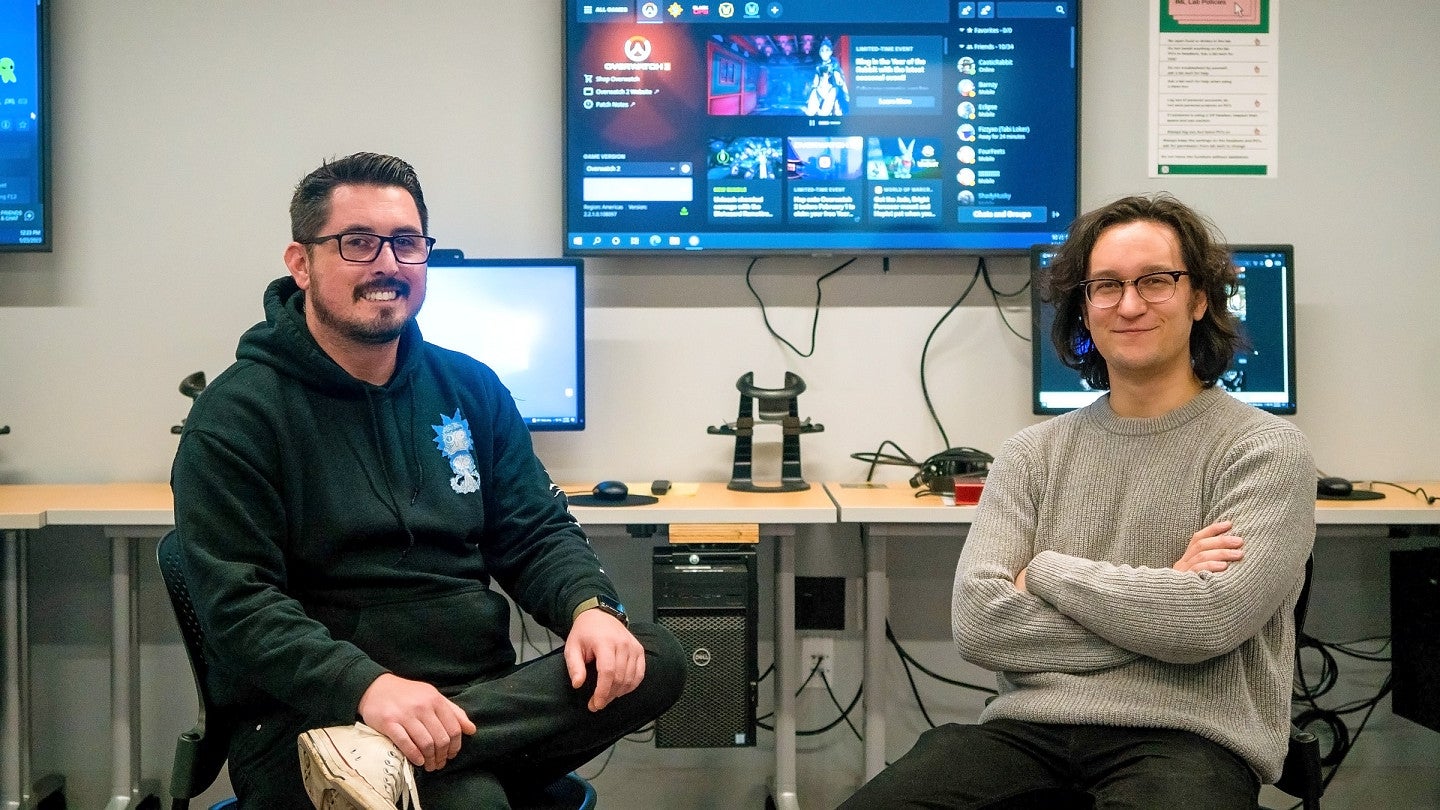
Esports research in the EGR Lab
The EGR Lab has published two academic articles so far:
- The first centered around student labor and discovered that the foundations and professionalization of esports programs relies heavily on student initiatives and entrepreneurship.
- The second article focused on collegiate esports programs’ responses to COVID-19. The lab discovered that both students and program administrators were committed to keeping esports afloat during the pandemic, but they weren’t communicating with each other effectively.
The lab has also completed a project surveying 520 current or prospective college students ages 18-33 about brand identity and their sense of connection with universities that have traditional sports, esports or both. The results revealed that both esports and sports fandoms contributed to participants’ perceptions of universities. As Communication and Media Studies PhD candidate Waseq Rahman explained in the study abstract, being a fan of a specific collegiate esports team significantly influenced perceptions about the host colleges, and having a favorite traditional college sports team was less significant.
While research conducted by the EGR Lab is primarily remote, doctoral students and faculty have taken advantage of the Immersive Media Lab in Allen Hall, the SOJC’s home on the UO campus. This recently renovated space is intended for student exploration of immersive media and experimental work like communication and media studies doctoral candidate Shane Burrell’s study of virtual reality. Students also attend special events in the space, such as the Center for Science Communication Research’s Climate Change Game Night.
With its first research projects underway, the EGR Lab is looking to expand its research down four paths.
- Esports ecosystem: Creating a comprehensive census of collegiate esports, including where they are housed in the university, who is in charge and what games they play.
- Diversity, equity and inclusion: Working to ensure esports is implemented into universities in a way that provides equitable opportunities as defined by Title IX.
- Alumni and professionalization: Investigating how the jobs that student esports players identify as their goal careers while they’re in college compare to where they end up.
- Fandom and consumer behavior: Exploring how collegiate esports programs develop fan bases or take advantage of pre-existing fandoms, and seeing what this means in the context of university marketing.
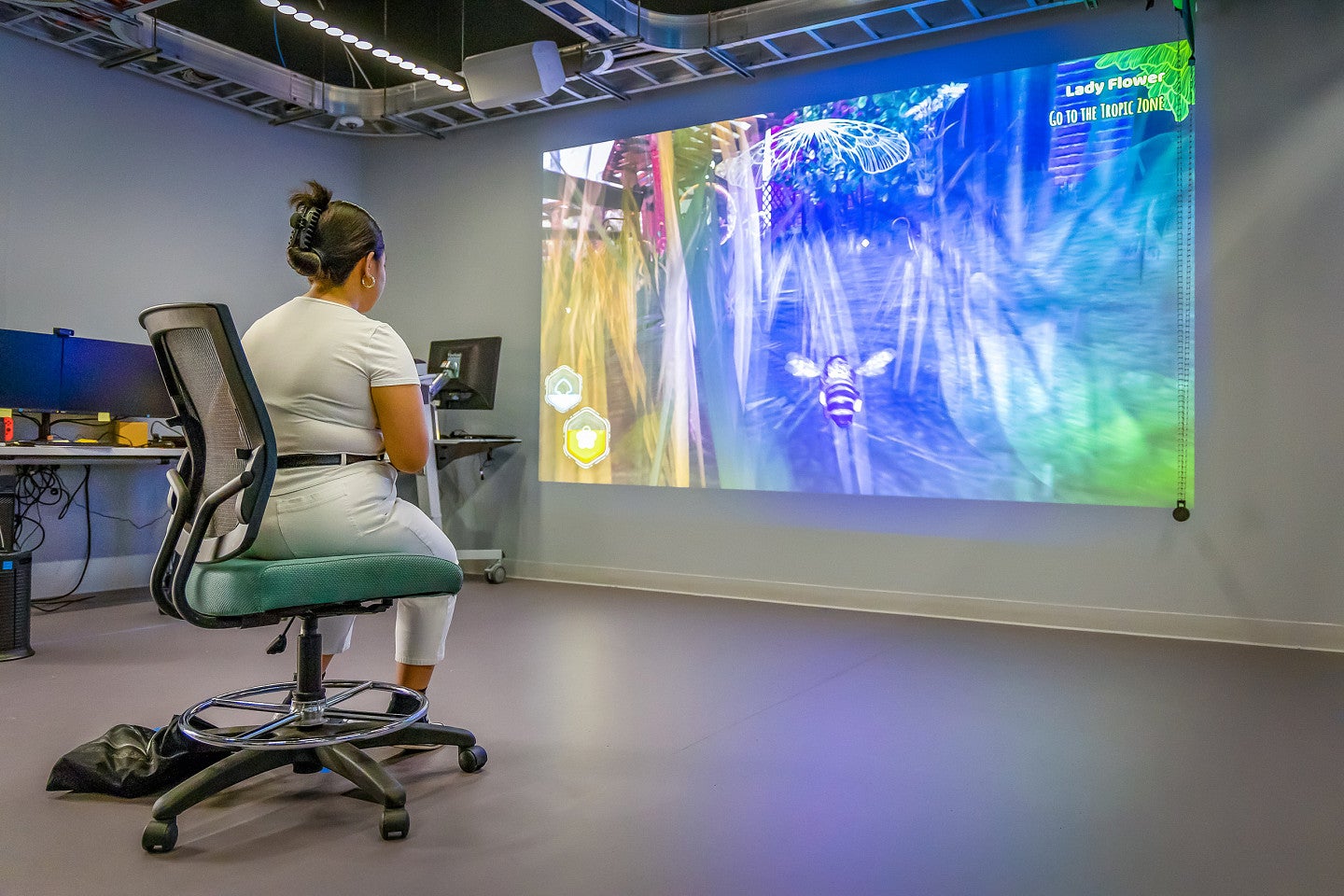
Collaboration and community
If EGR researchers could use one word to summarize their work, it would be “collaborative.” They meet once a week to share ideas and provide updates. According to Wilson, the lab emphasizes resource sharing and fosters an environment of support and assistance with communal projects.
The lab collectively is preparing several papers with contributions from every member. According to Burrell, this type of cohesion is rare in academia, and that professional and personal support is indispensable during the rigor of doctoral coursework.
Faculty and doctoral students are vital resources for producing ideas, conducting interviews, writing surveys and drawing insights from analysis.
“It’s amazing how productive we have been with [students] as the engine of this lab,” Foxman said.
First and foremost, Cote and Foxman are academics, and they hope to contribute to the growing body of research around esports and gaming. But they also hope to make public-facing and practical guides that can be used by sponsors, game companies and, ultimately, universities to bolster their programs.
“With the founding of the varsity esports team and eventual construction of a dedicated practice space [at UO], I felt keyed into seeing how it was affecting campus,” Foxman said.
“Our major goal is to make EGR the standard-bearer for those interested in collegiate-level esports.”
–By Whitney Conaghan, class of ’23
Whitney Conaghan, class of ’23, is a public relations major and multimedia minor. She is currently working as a social media and writing intern for the SOJC’s Communication Team.
